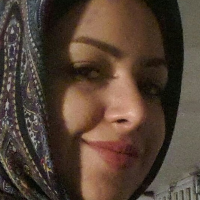Philology and the Philological Tradition in German-Speaking Orientalism (The Islamic Period)
Author(s):
Article Type:
Research/Original Article (دارای رتبه معتبر)
Abstract:
Philology means the study of culture through language and attention to the linguistic nature of culture. Philology has been a major part of European Orientalism since the 18th century. Attention to Eastern languages began with biblical studies, with the advent of philology gradually separating its path from theology and becoming a way of understanding Eastern languages and texts. The need to learn Arabic, Persian and other Eastern languages led to the establishment of schools in Europe. It started in France but continued in Germany. In this article, after a brief overview of Orientalism and expressing the turning points of Iranian studies in Germany, the academic tradition of philology is explained in detail. Then, the importance of the philological method in the two traditions of German Orientalism (romantic and philological) is illustrated. The Romantic tradition relies more on the translation of Oriental texts and uses philology as a means of improving the quality of translation. The philological tradition seeks the historical reconstruction of text and language, and follows a neat trajectory. The importance of the philological method is attention to the text and its context. Classical philology, with its teaching of Oriental languages and manuscripts, has provided rich sources, from dictionaries to catalogs and corrected texts. In this tradition, the analysis of the Quran and the reconstruction of its context play a pivotal role. The importance of the philological tradition in the study of the sacred text is the abandonment of the concept of sanctity, which makes it possible to research the context and details of the text. This article deals with the genealogy of German philologists and the classification of their services at the levels of translation, cataloging, and proofreading of Persian and Arabic texts, and shows its evolution from the first generation to the golden age in the twentieth century. The focus of the article is on correcting mystical and Islamic texts and the projects of German-speaking orientalists in this field.
Keywords:
Romantic tradition , Context , Manuscript , catalog , Bible
Language:
Persian
Published:
Iranian Studies, Volume:10 Issue: 2, 2021
Pages:
115 to 137
https://magiran.com/p2343860
دانلود و مطالعه متن این مقاله با یکی از روشهای زیر امکان پذیر است:
اشتراک شخصی
با عضویت و پرداخت آنلاین حق اشتراک یکساله به مبلغ 1,390,000ريال میتوانید 70 عنوان مطلب دانلود کنید!
اشتراک سازمانی
به کتابخانه دانشگاه یا محل کار خود پیشنهاد کنید تا اشتراک سازمانی این پایگاه را برای دسترسی نامحدود همه کاربران به متن مطالب تهیه نمایند!
توجه!
- حق عضویت دریافتی صرف حمایت از نشریات عضو و نگهداری، تکمیل و توسعه مگیران میشود.
- پرداخت حق اشتراک و دانلود مقالات اجازه بازنشر آن در سایر رسانههای چاپی و دیجیتال را به کاربر نمیدهد.
In order to view content subscription is required
Personal subscription
Subscribe magiran.com for 70 € euros via PayPal and download 70 articles during a year.
Organization subscription
Please contact us to subscribe your university or library for unlimited access!


